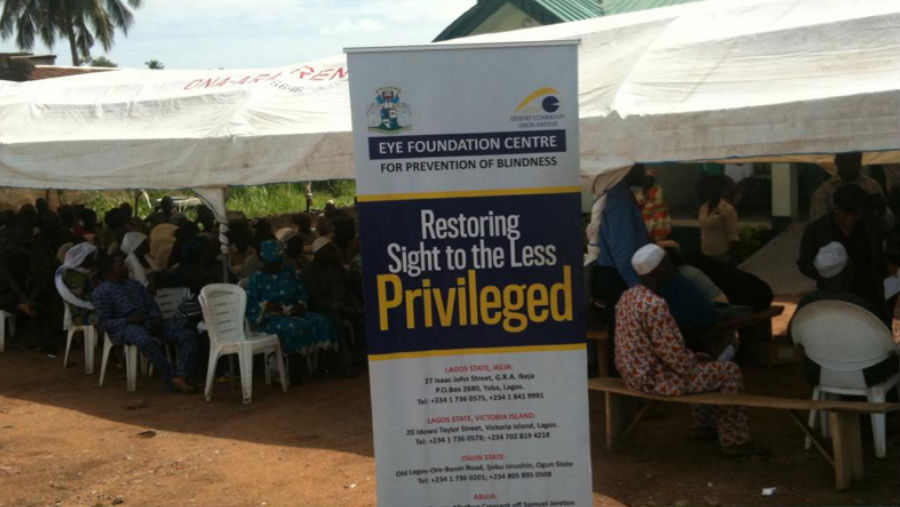Join a powerful, unprecedented alliance for better eye health for all.
Join IAPB-
Choose an alternate language here
Adeyemi Oyewumi and Frances Unuode on how the Eye Foundation Hospital promotes excellence in eye care delivery…

We offer three levels of care (primary/basic level care, secondary level care and tertiary level care) within our network ensuring an uninterrupted level of escalation and access to quality eye care for all. Our Primary Eye Care Centres (PECCs) are entry points of care which promote access in communities where little or no basic eye care exists. PECCs are referral points for Secondary Centres (medium-sized eye hospitals which undertake middle level care and surgeries). In turn, Secondary Centres are referral points for our Tertiary level hospitals where specialist eye care services are provided.

Eye Foundation Hospital Group places a premium on promoting excellence in eye care delivery, clinical expertise, collaborative partnerships and the use of state-of-the-art technology in achieving its overarching objective of eliminating avoidable blindness in Nigeria and across the West Africa Sub-region.
The Group has created opportunities for connecting local efforts with international best practices with a view to catalyzing the scale of its programme, while achieving quality eye care for all . Our model and level of impact over are a result of constructive partnerships with community level organizations, government/non-government stakeholders, international organizations as well as private sector organizations. We have vigorously pursued our vision through these partnerships and platforms, all of which have contributed to the reach of the organization. Some of our notable projects undertaken through partnerships include:
We have also engaged with the Lions Club and Rotary Club through various initiatives to improve outreach and sight for the less privileged in the society.

Eye Foundation Hospital has grown over the years, creating additional entities all working together in an integrated manner towards the vision to eliminate avoidable blindness. Together these entities are known as the Eye Foundation Hospital Group (EFHG). They include:
“I have been involved in training nurses even before the establishment of the Deseret Community Vision Institute. Being part of the faculty that has trained over 100 Community Ophthalmic Nurses and not less than 200 Middle Level Ophthalmic Practitioner has given me so much pride and fulfillment especially because of the relevance and content of the training that is geared at meeting the ever dynamic needs of patient eye care. From the Institute’s Management Board and fellow tutors to the materials we dish out, I have found out that I feel inspired with valuable new ideas and techniques that I can implement in our training activities.” – Paul Nwagala (Ophthalmic Nurse, Clinical Service Manager at Eye Foundation Hospital)
2. Deseret Community Vision Institute (DCVI) – This is the training arm of the Group which oversees training for ophthalmology residents and fellows, mid-level ophthalmic practitioners (MLOPs), optometrists, and ophthalmic nurses. DCVI focuses on ensuring a sustained development of human resources and skilled personnel to fill the gaps in dearth of human resources in Ophthalmic care. Over the years we have trained over 15 sub-specialty Ophthalmologists Fellows from Nigeria and other African countries such as Ghana, Democratic Republic of Congo, Sudan, Ethiopia and Cameroun; 35 Residents, over 100 ophthalmic nurses and over 200 MLOPs. DCVI has also secured accreditation with the Joint Commission on Allied Health Personnel in Ophthalmology (JCAHPO) to boost the cadre and recognition of its MLOPs. From our recent data analysis to assess the impact of our training, we found that women form the bulk of the people trained so far – 88% of MLOPs and 60% of Resident Ophthalmologists are women.
Our IAPB membership over the years has been a great platform for building partnerships and we look forward to also showcasing our experience and learning from others as we all strive to achieve a world without needless blindness.